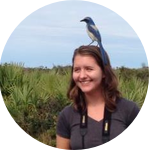Project Results
Thanks so much to everyone who supported this project! I'm happy to say that our results have been published (see link for the full scoop)! Using our experimental approach, we found that when we played traffic noise in a roadless area, we observed fewer frogs and toads. However, when we played a different noise- traffic noise that had the frequencies that interfere with frog and toad communication digitally removed- we didn't observe a significant reduction in numbers. We also found that the traffic noise, but not the digitally altered noise, caused Oak Toads to change how they vocalized.
This suggests that frogs and toads might avoid traffic noise in order to have a better chance of communicating clearly. Neat, right? We need to consider how building new roads might impact the conversations that these imperiled amphibians are having- and how that might impact their long-term survival. After all, if no one can hear your love call- no baby toads for you!
Evidence for selective avoidance of traffic noise by anuran amphibians
Molly K. Grace and Reed F. Noss
About This Project
Frogs are common visitors to our backyards, and these fascinating creatures are also great indicators of our environment's health. However, they face a number of threats, leaving many species endangered.
My project investigates how traffic noise, a widespread source of disturbance, may be affecting frog movement, reproduction, and stress. To do this, I need to obtain solar panels to play traffic noise in a remote area.
Any donations past $225 will be used to keep this experiment going and growing!
Ask the Scientists
Join The DiscussionWhat is the context of this research?
Roads are one of the most widespread features of human activity, and they aren't quiet about it: traffic noise can be heard up to 1000 meters from the road. Studies have shown that traffic noise causes some bird species to avoid roadside habitat, and that it may even cause some birds and frogs to change the way they communicate. However, we don't yet know if these effects have a negative impact on population survival. That's what my research will help uncover.
To investigate the effect of traffic noise alone, without confounding factors, I am broadcasting traffic noise in Tosohatchee Wildlife Management Area, which has no paved roads. But, I need solar panels to keep my noise broadcast going- otherwise, I have to trek out to recharge my batteries every other day.
What is the significance of this project?
Cars are well-known frog killers, squashing thousands each year as frogs migrate to their breeding ponds. Because of this, some areas have started installing "frog crossing structures" to help them cross roads safely. However, these structures do not eliminate traffic noise, so it's critical that we understand how noise affects frogs and other animals. This is especially important considering that worldwide, 25 million kilometers of new roads are planned to be built by 2050!
What are the goals of the project?
I have already set up experimental ponds at Tosohatchee to attract breeding frogs, and I have recorded the traffic noise to play there. I'm in the process of measuring frog abundance, reproductive success, and stress levels under different traffic noise treatments. However, I just need solar panels to keep the noise tracks going for longer! Ultimately, I will publish the results so that they can be implemented in frog conservation and road planning.
Budget
I have 4 experimental sites. At each one, I have a stereo and speaker, connected to a battery, that broadcasts traffic noise. Right now, I have to recharge these batteries after 2 days, which is difficult (remember: this is a roadless area) and it also cuts down on the amount of data I'm able to collect. Recharging takes an entire day, which means no noise and no data. With solar panels, I can "set it and forget it," saving time and resources and improving data collection. Having solar panels will make this study more robust.
Stretch goals are there in case we reach the initial goal of $225. Because something ALWAYS goes wrong in field work, it would be nice to be able to purchase replacements in case of disaster!
Meet the Team
Team Bio
When I decided to pursue science as a career, I knew that I wanted to do research that would have a positive influence on conservation. As an undergraduate at Duke University, I started working in a lab that studies bird communication, and for my senior thesis, I did an independent project studying the effect of traffic noise on bird conversations. Ever since then, studying the interplay between roads and wildlife has been my passion! This passion led me to come to UCF for my PhD and work with Drs. Reed Noss and Dan Smith on various road ecology projects. There are few places on the planet that don't feel the impacts of roads (only 3% of the U.S. is more than 5 km from a road!), so I feel that understanding their effects on natural systems is critical to our conservation efforts.
When I'm not teaching or conducting research, I love to watch and participate in theater, take hikes, canoe, and cook.
Feel free to contact me at at mkgrace@knights.ucf.edu, or check out my webpage: http://mkgrace14.wix.com/mollykgraceconbio
Molly Grace
My primary research interest is road ecology. I am currently pursuing a Ph.D. in Conservation Biology at the University of Central Florida, advised by Dr. Reed Noss. My research experimentally investigates road avoidance behaviors, including the influence of road noise on anuran (frog and toad) abundance, reproduction, and stress. I am also evaluating the effectiveness of an animal-vehicle collision mitigation measure (Roadside Animal Detection System), using data from a driving simulator experiment and from the field.
Additional Information
My lovely roadless study site in Central Florida. Its pine flatwoods natural community is bursting with frogs!
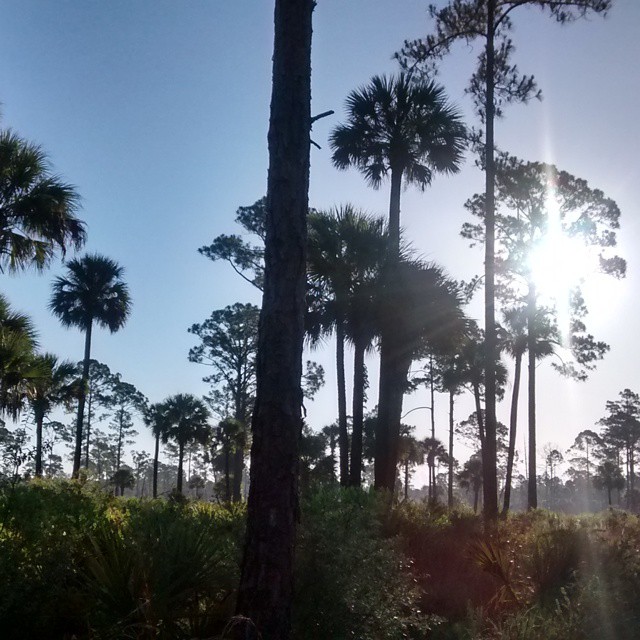
Pinewoods treefrog (Hyla femoralis) at study site.
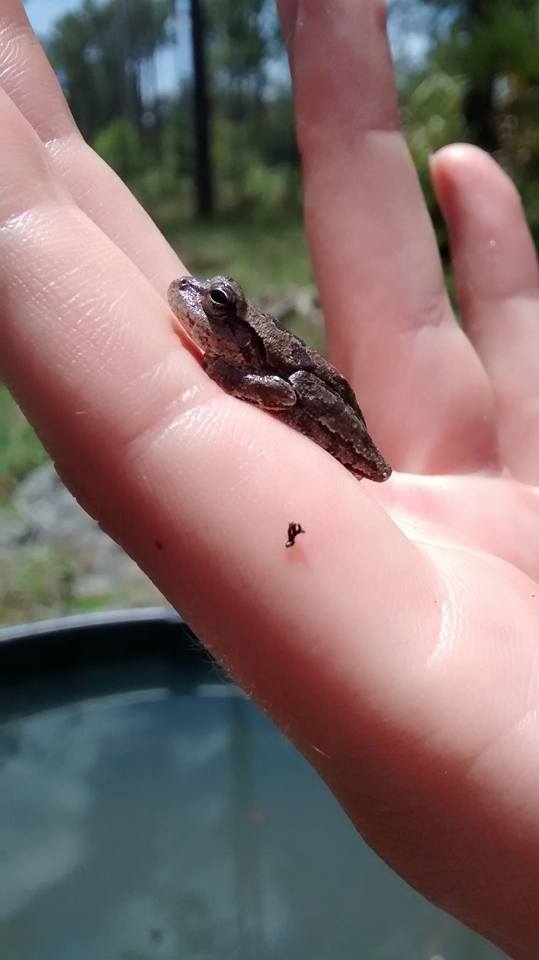
Little grass frog (Pseudacris ocularis) adult at the study site. These guys are the smallest frogs in Florida!
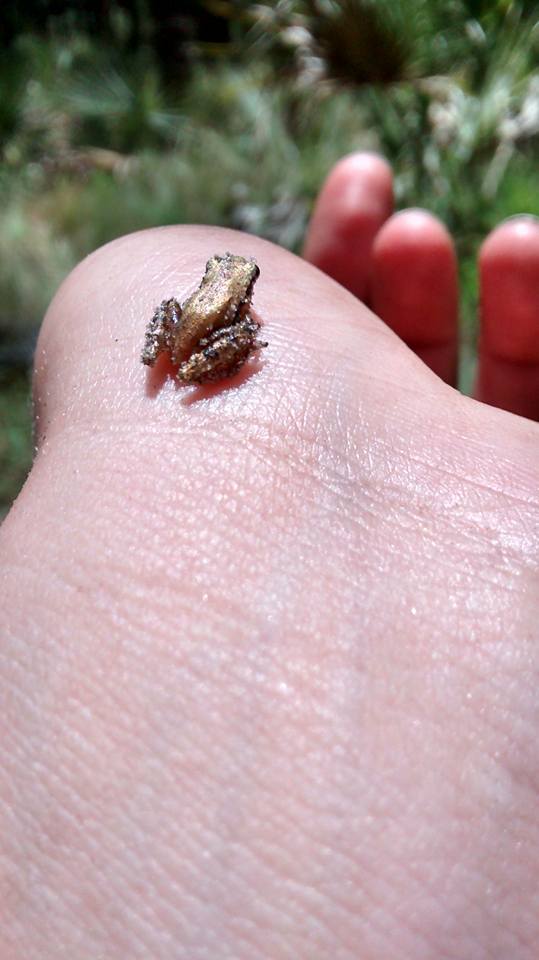
Squirrel treefrog (Hyla squirella) looking for a mate at the study site.
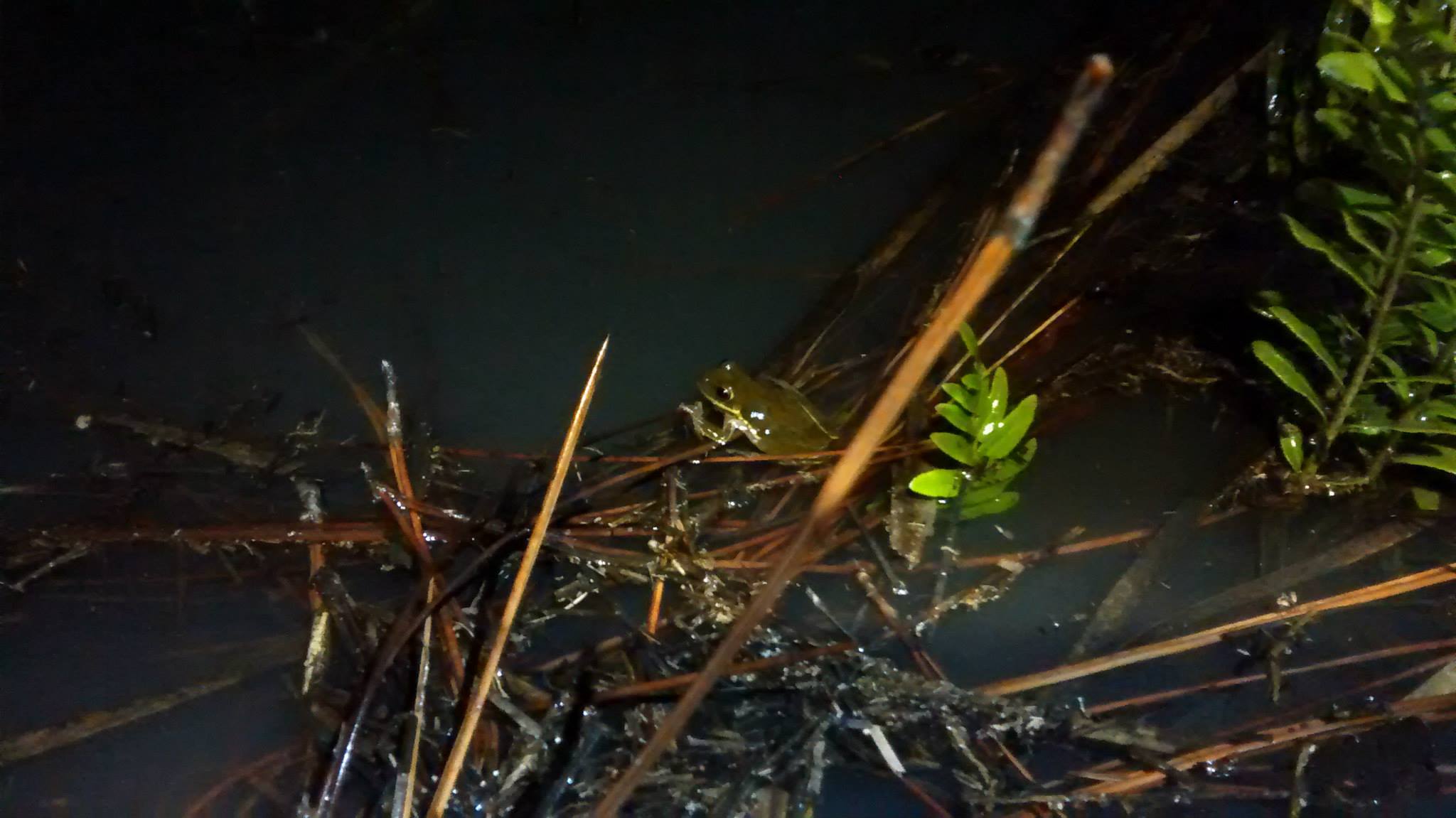
Project Backers
- 11Backers
- 134%Funded
- $303Total Donations
- $27.55Average Donation
